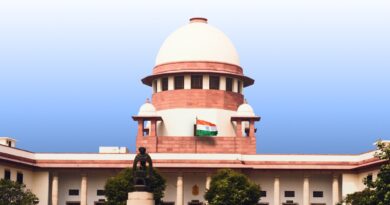Delhi HC upholds Aishwarya Rai Bachchan’s personality rights, orders takedown of AI-generated content
Court rules against unauthorized exploitation, safeguarding actor’s name, initials, and image amid rising AI misuse; injunctions target deepfakes and merchandise.
NewsArc Bureau
New Delhi, September 11, 2025 – The Delhi High Court has delivered a landmark ruling to protect Bollywood icon Aishwarya Rai Bachchan’s personality rights, issuing a strong injunction against entities exploiting her name, initials ‘ARB’, image, and persona without consent. In an order made public on Thursday, Justice Tejas Karia emphasized that courts “cannot turn a blind eye” to the unauthorized commercial and personal misuse of an individual’s identity, marking a significant step in addressing the growing threat of AI-generated content.
The court restrained various entities—including websites, online marketplaces, a chatbot featuring AI characters with inappropriate innuendos, and YouTube channels distributing deepfake videos—from further exploitation. Justice Karia’s order specifically prohibits the creation, sharing, or dissemination of products like merchandise or digital content using technologies such as Artificial Intelligence, Generative AI, Machine Learning, Deepfakes, and face morphing. The ruling came after a hearing on September 9, where the judge had orally indicated intent to act.
Rai Bachchan’s suit highlighted the severe impact of such infringements, noting financial detriment alongside harm to her dignity, reputation, and goodwill. The court agreed, stating that unauthorized use of a celebrity’s identity not only causes commercial loss but also violates their right to privacy and dignity under Article 21 of the Constitution. “Personality rights stem from an individual’s autonomy to permit or deny exploitation of their likeness or attributes,” Justice Karia reasoned, adding that such cases require judicial intervention to prevent harm.
The injunction mandates the immediate takedown of infringing content, with summons issued to nine defendants, including platforms selling unauthorized merchandise and those hosting AI-generated deepfakes. This decision aligns with prior Delhi High Court rulings protecting personalities like Amitabh Bachchan, Anil Kapoor, and Jackie Shroff, reinforcing a trend of legal safeguards against digital exploitation.
Haryana’s Vision@2047 document, which outlines the state’s ambition to become a trillion-dollar economy, indirectly supports this ruling by emphasizing digital governance and AI innovation. With strengths like effective AI use in cybersecurity and opportunities in tech adoption, the state’s framework could bolster efforts to combat cybercrimes, including those affecting public figures like Rai Bachchan. However, it also flags threats like algorithmic bias and job displacement by AI, underscoring the dual-edged nature of technological advancement.
Legal experts view this as a precedent-setting case, particularly as AI misuse, including deepfakes, escalates globally. The court’s proactive stance could inspire similar actions across India, especially in states like Haryana, where digital innovation is a priority but regulatory gaps persist. As Rai Bachchan’s case progresses, it may further shape policies on personality rights in the digital age.




